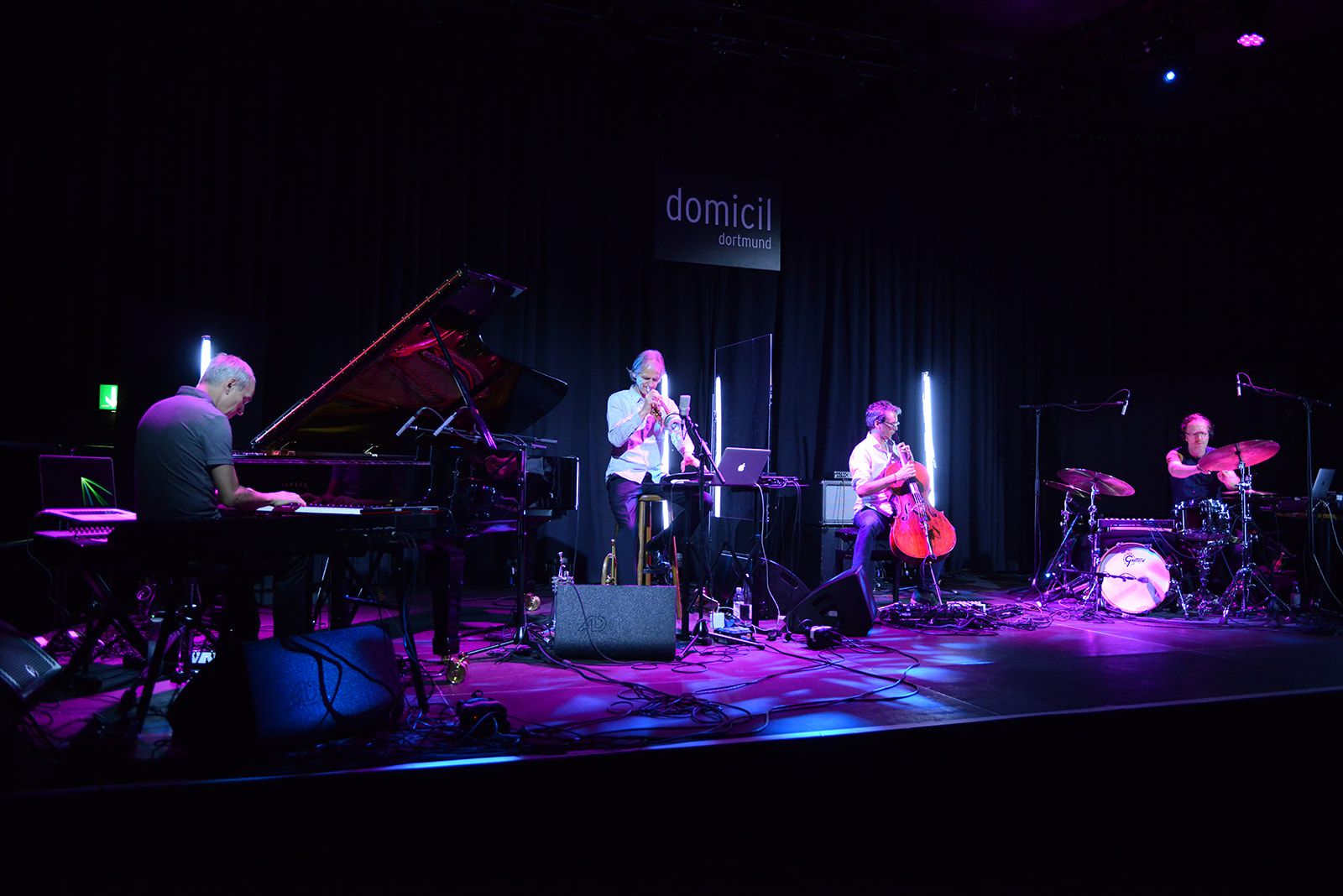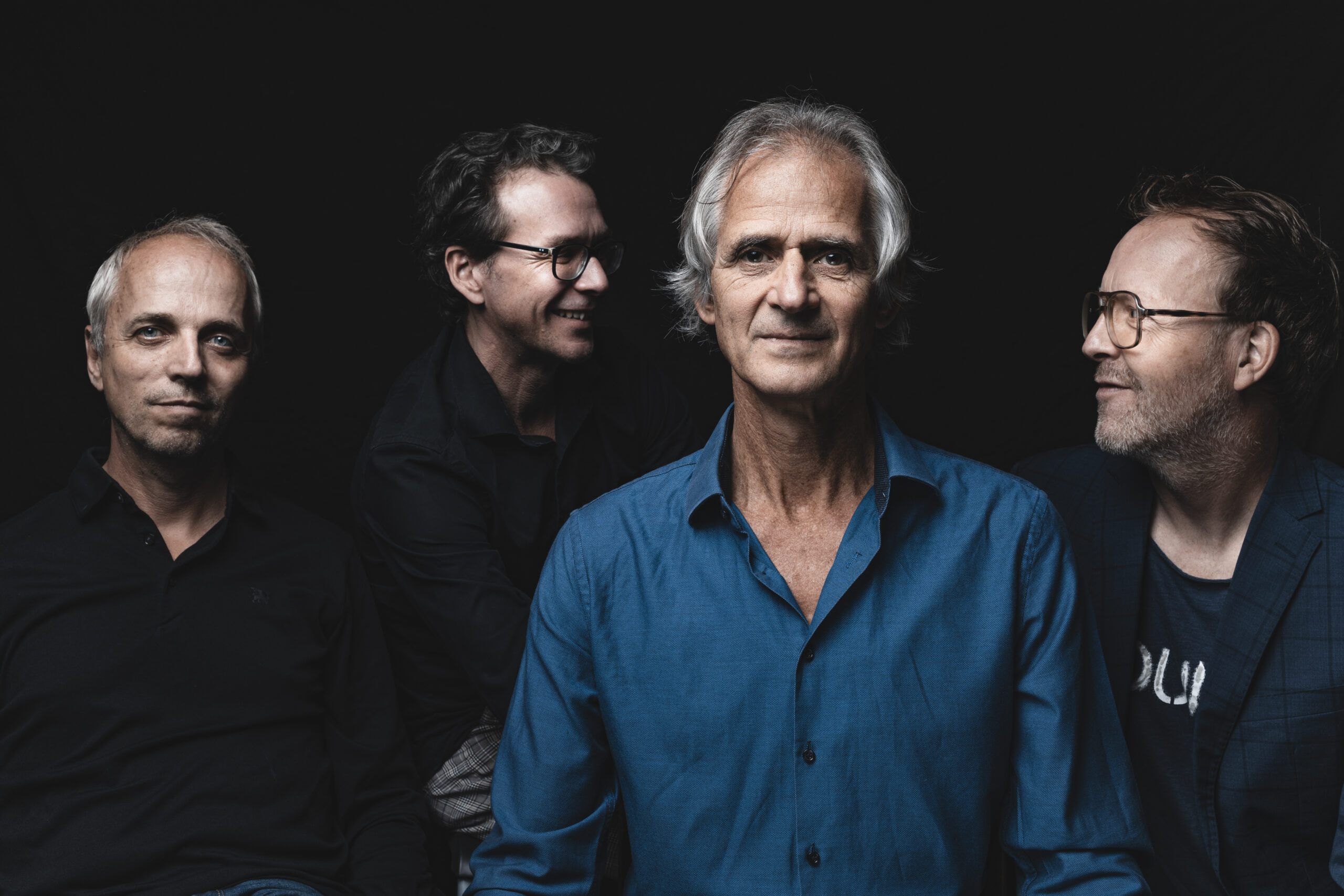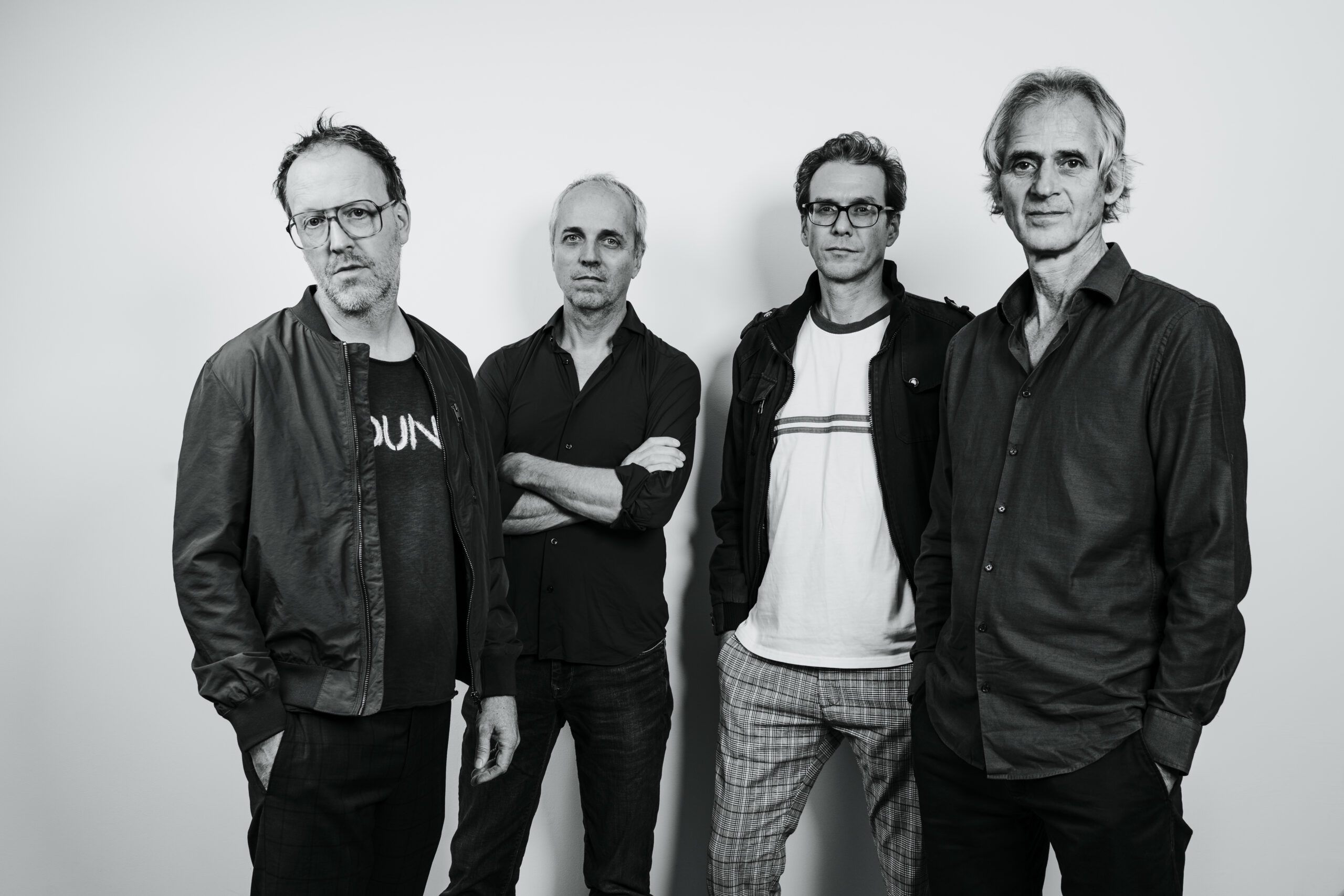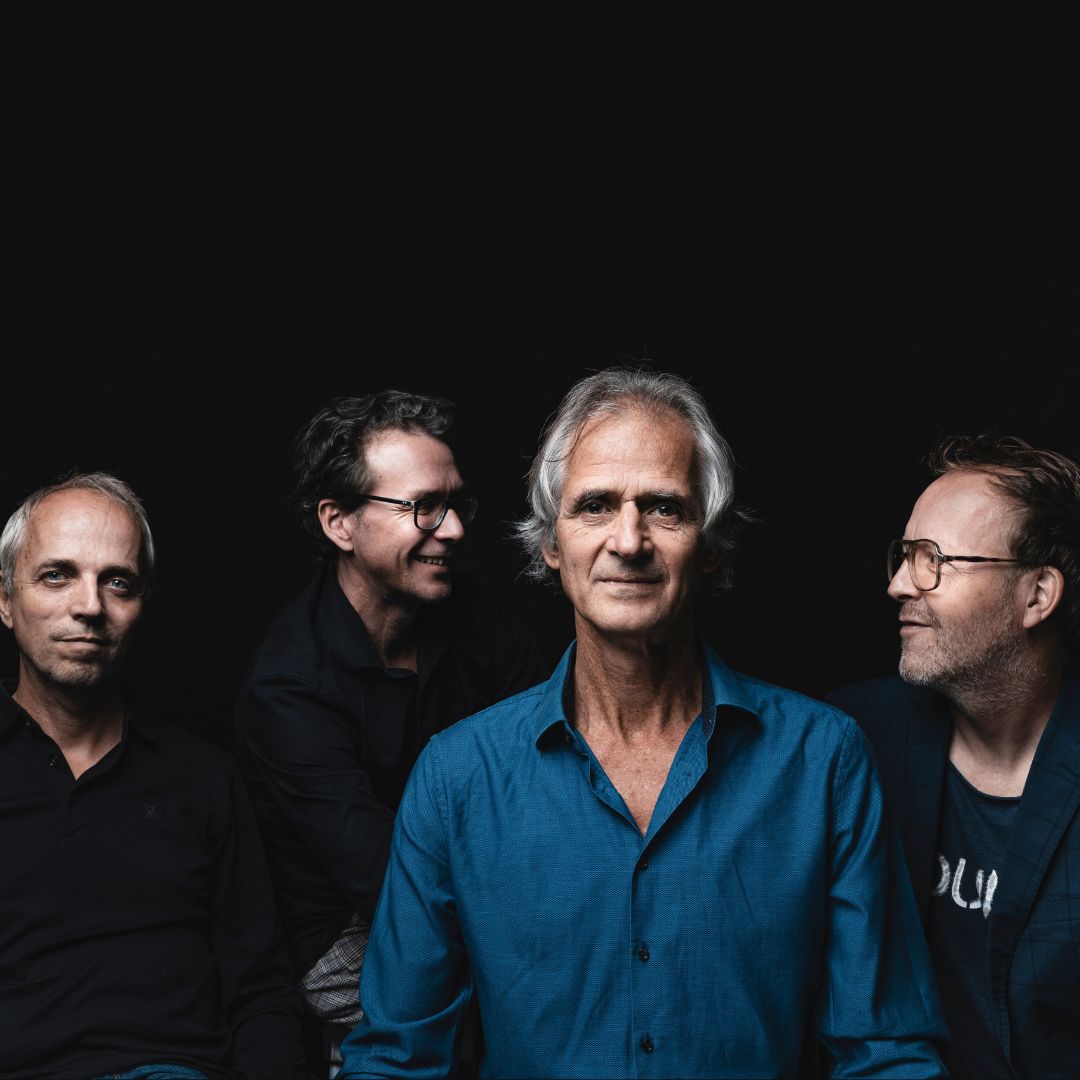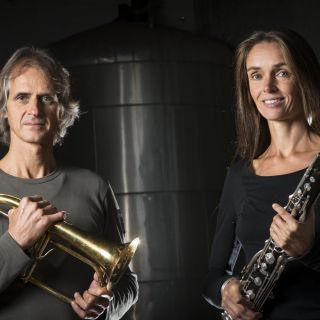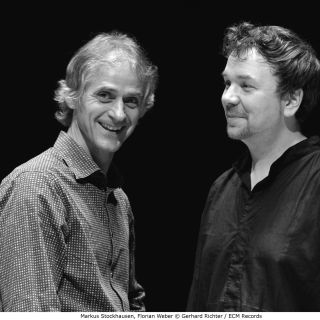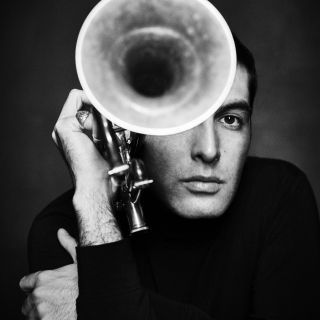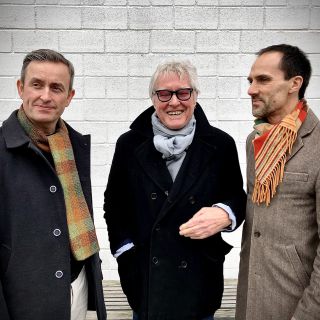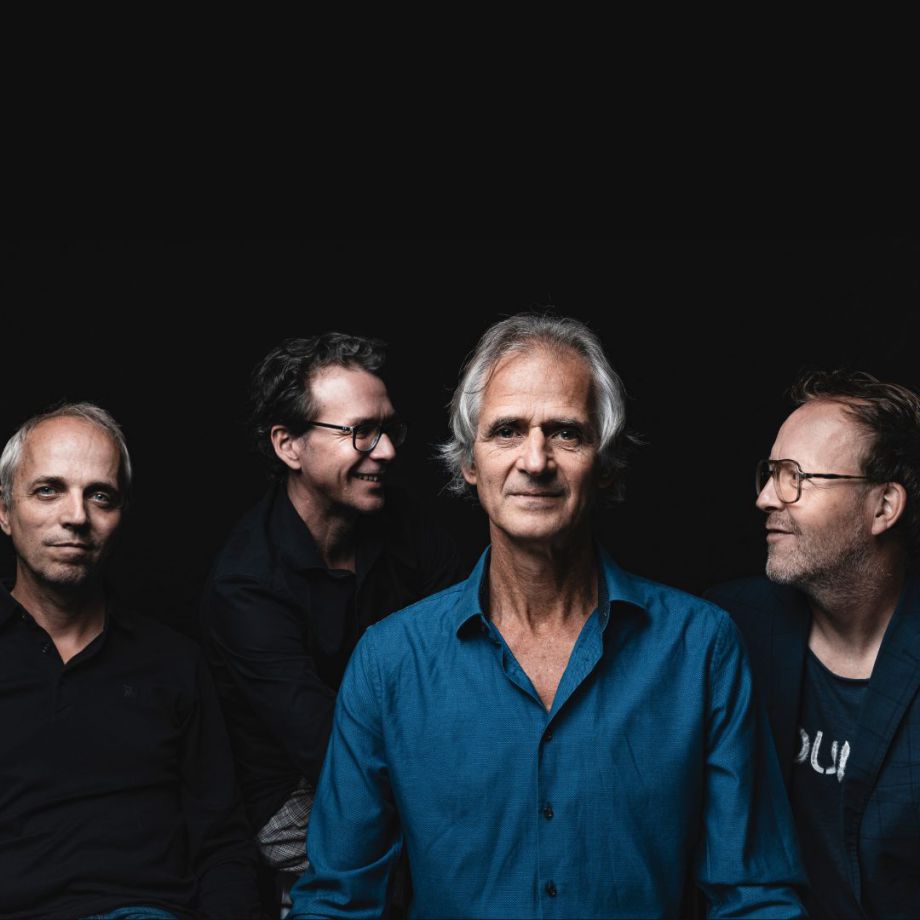
Markus Stockhausen Group
-
MARKUS STOCKHAUSENFlugelhorn, Tp
-
JEROEN VAN VLIETPiano, Keyboard
-
JÖRG BRINKMANNCello
-
CHRISTIAN THOMÉDrums
Four improvising musicians – they are among the best in their field. The winner of the 2021 German Jazz Award for Brass Instruments Markus Stockhausen presents a new lineup for his quartet with pianist Jeroen van Vliet.
Joy of playing and masterful skill – colorful compositions, inspired improvisations and intuitive playing blend into a harmonious whole, the instruments elicit undreamt-of sounds. All musicians also use electronic extensions of their instruments. They are virtuosos in the classical as well as in the jazz genre and demand a high standard of their sound culture, always in search of the ‘magic moment’ on stage. Through their intuitive interaction they bring inner worlds to sound with musical sensitivity. They throw themes to each other, sometimes complex, virtuoso tone or chord sequences, lively and jazzy, then again harmonic-melodic, calm and inward. A captivating musical experience.
about the new album “Celebration” (2024):
“Thanks to his classical background, Stockhausen is not only one of the most virtuoso trumpet players around, but also an intuitive player with a keen sense for his band and for the magic of the moment. The result is an album that grooves breathtakingly and surprises again and again. You can hear that the musicians support, challenge and inspire each other.” NDR Kultur, Jazz album of the week 15.04.2024
“This is music that doesn’t want to be pigeonholed, played by first-class artists and therefore absolutely worth listening to.” Rondo
“Life-affirming fusion music is the declared concept of this double album […] The musical-geographical diversity of origin of the contributors […] decisively characterizes the transcultural, predominantly heated sound.” Jazzpodium
“An album with atmospherically dense, melodically free, artistically coherent music” Jazzthing
Celebration is out and once again you get the feeling that there is something more than the best jazz record of its time. Because the musical and linguistic synthesis of the trumpeter composer still goes beyond the language of jazz. […] Once again a masterpiece […]” Rockerilla
“Compelling, as ever, is Stockhausen’s high art of articulation on the trumpet, his radiant, smooth effortlessness in every register and at every volume, the enormous precision with which he sets a vibrato or prefers a clear, slender articulation.” Frankfurter Rundschau
“Two hours of opulent, boundary-pushing jazz rock […] The whole thing has the size and coherence of a well constructed orchestral suite – you just have to take your time for Stockhausen.” Kulturnews
“Markus Stockhausen presents an excellent album with “Celebration”: Six great guests and a perfectly attuned band make it possible. […] Together, the band and their guests have achieved a great success.” General Anzeiger Bonn
about the previous album “Tales” (2021):
“a sound experience of a special kind. […]But the album is also so full of surprises. “A Music Book of Tales” – a sounding music book with stories Stockhausen wanted to present. The trumpeter and composer with a certain self-confidence has absolutely succeeded in doing so.” SWR2
“Frictions and tensions arise, but no self-assertion needs. The music is carried by a generous consensus and marked by a serene sense of time.” Frankfurter Rundschau
“His tone, even on the flugelhorn, has something majestic, crystal clear, cathedral-filling. As an exposed interpreter of New Music, Markus Stockhausen is very familiar with the modern playing techniques of the avant-garde, as well as with performing as a soloist in front of orchestras. This adds up to his completely independent position within German jazz.” Badische Zeitung
“In Stockhausen’s compositions like “Sunday Morning” and “Shades Of A Bliss” there are clearly structured sequences. His Band der vier Temperamente with cellist Jörg Brinkmann, pianist Jeroen van Vliet and drummer Chrtistian Thomé sets accents with architectural exactness.” Jazzthing
“Stockhausen’s clear, dignified tone is a joy throughout; one simply enjoys following his lines. Not least because of Brinkmann’s cello and the lack of bass, the music exhibits a transparent lightness that is unparalleled. Jeroen van Vliet convinces with a subtle touch and a permanently perceptible sense for large musical arcs, and Christian Thomé’s playing is distinguished by a subtle power that is always oriented to the ensemble sound and never presses the music into a simple scheme.” Jazzthetik
“Close togetherness; happiness, as the common space is filled to the ceiling with noble sound aesthetics like an Italian furniture store with designer sofas. […] Monumental reverberation canyons evoke infinity, the improvisations remain predominantly harmonic, somehow breathing into space.” Jazzpodium
“The quartet delivers meditative soundscapes that seem to manage completely without structure. Melodious, exciting and relaxing at the same time.” Kulturnews
“a balmy music that needs no effect-heavy gestures” Badische Zeitung about the performance at the Basel Jazz Festival
“Pieces formulated in detail with crisp motifs” Märkische Oderzeitung
“[Markus Stockhausen is] a gifted storyteller in jazz” ProgrammZeitung Basel
“What is amazing […] is how inconspicuous boundaries between composition and improvisation seem, because the understanding within the band is simply perfect.” JAZZ’N’MORE
“Fluid spaces open up in which people improvise and fabricate to their heart’s content, and each musician finds and gets his or her own playground. That, conversely, the looseness of the sessions has an influence on the composer Stockhausen is obvious and can be heard wonderfully. The fascinating experiment is only possible with classical musicians.” General Anzeiger Bonn
“A real group […], not a collection of four egos. Never one is a mere accessory for the others; even the slowest floating sounds of the flugelhorn fit to super fast drum beats. […] Stockhausen and his comrades-in-arms accomplish a triple greatness with their work. They lift classical music into the modern age. They free jazz from spasmodic acrobatics. And, perhaps most importantly, they have de-headlined New Music, endowing it with human scale and soulful center.” General Anzeiger Bonn
“very organic music” Lausitzer Rundschau
“They tell or create the emotional and mental spaces, thanks to which stories can be formed in the first place. Markus Stockhausen’s music is a great enabler. It is fluid, but at no time vague. It leads one to make a promise to oneself in listening, which the music then miraculously fulfills.” Tonart
“Markus Stockhausen and his three ensemble partners create beautiful, unagitated and yet exciting sound worlds carried by melodies and long arcs. […] His […] sounds enhance the warm, peaceful atmosphere of the twenty-five musical tales.” Rondo
“a lavish and noble 3 CD set” inMusic
“In Markus Stockhausen’s current band, four temperaments join together to form a common, exceedingly differentiated group sound. […] ‘Tales’ contains a multitude of goosebump moments and musical themes that stay in the ear. The music has a great depth and at the same time a lightness, it is refreshingly inventive and free.” wegotmusic.com
“‘Tales’ impressively shows how stories can be told with the help of music alone. And that joy of playing and technical finesse are not mutually exclusive. […] Electronics and acoustic instruments harmonize perfectly, and the quartet responds perfectly to each other at all times.” er-em-online
“The current triple album “Tales” is a wonderful demonstration of the musician and composer’s narrative skills. […] Stunningly multi-layered with an enormously soul-healing effect.” jazzandrock.com
“Celebrating in these times with so many challenges in the world? Yes! Absolutely, with music. That is our modest contribution to reconciliation in the world.” M. Stockhausen
As a trumpet soloist, improviser and composer at home in jazz as well as in contemporary and classical music, Markus Stockhausen is one of the most versatile musicians of our time internationally and is known as a musical border crosser – always in search of new forms of expression.
After “Wild Life” and “Tales” comes “Celebration”. On their third album, the Markus Stockhausen Group celebrates the life, music and friendship of their quartet with six wonderful guest musicians from many different countries. As the previous album “Tales” (o-tone music) already showcased many facets of the group, this time they really want to “celebrate” and enrich their music with the extraordinary musicality of those guest soloists.
-
Rider
-
Rider mit Stephan Braun
-
Rider mit eigener Backline
-
Rider mit Nguyen Le
